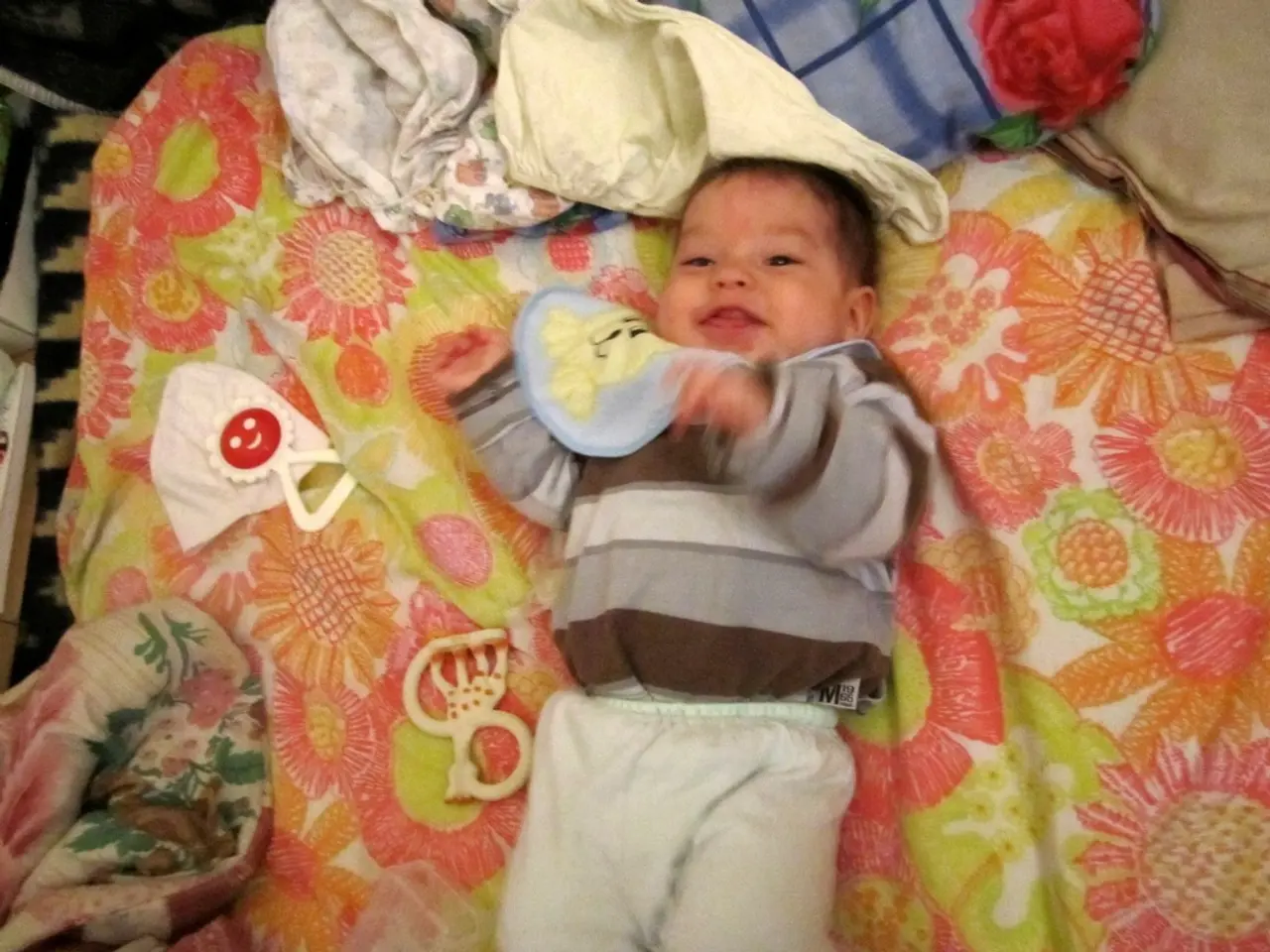Financial turmoil caused by parenthood
In the bustling world of parenthood, the costs associated with welcoming a new baby can be overwhelming. A recent study published in 2023 by Statistics Canada sheds light on this topic, revealing that family expenses dedicated to children vary greatly according to income level.
The study found that the cost of raising a child from birth to adulthood can range significantly. For a low-income family, the average cost over 18 years amounts to approximately $290,000, equating to around $16,000 per year. On the other hand, high-income families can expect to spend up to $545,000, or around $30,000 per year.
One of the key factors influencing these costs is the choice between breastfeeding and formula feeding. Breastfeeding is generally less expensive, but the cost of formula has skyrocketed in recent years, with the cost of diapers alone in the first year reaching around $900.
Opting for reusable diapers can lead to significant savings despite an initial heavy investment. On the other hand, purchasing essentials for a baby's arrival second-hand can help parents save money, as demonstrated by Noémie Perrier-Malette, who is aiming to have $25,000 saved up by November.
Parents often find themselves targeted by advertisers after having a baby, leading to impulsive purchases. Advertisers often encourage parents to buy items like a maternity photoshoot, a baby sock that monitors vital signs, and anti-stretch mark oil. Raphaëlle Raymond-Allaire, for example, made impulsive purchases like a baby wipe warmer and a bottle warmer due to targeted advertising.
The cost of basic equipment, clothes, and nursery decoration for a new baby can reach around $4500. A stroller that works with a car seat can cost a minimum of $500, and up to $2000 for the most expensive models.
It's important to note that the study includes expenses for housing, food, transportation, and clothing, among other things. The annual amounts vary depending on the child's age. For parents like Claudia Lalancette, who spent "few hundred dollars" on maternity clothes and healthcare expenses such as physiotherapy sessions or private medical tests, these additional costs should not be overlooked.
Interestingly, the study also found that the bigger the income, the bigger the expenses. However, for parents like Noémie, who will see their income decrease when they go on maternity leave, it's essential to plan and save accordingly. Noémie will receive 70% and then 55% of her usual income through the Quebec Parental Insurance Plan (QPIP).
When compared to other countries, the costs of raising a child in Canada are relatively high. For instance, the average annual household consumption expenditure in Germany for a family with a middle-class income is about 34,152 euros (2,846 euros monthly), but this includes all household members and does not specify costs solely for raising a child from birth to adulthood. Key expense categories include housing, food, mobility, and education.
In conclusion, raising a child is a significant financial commitment, and parents should be aware of the various costs involved. By making informed decisions, such as opting for reusable diapers, purchasing essentials second-hand, and carefully considering impulsive purchases, parents can better manage their expenses and prepare for the financial challenges of parenthood.
Read also:
- Understanding Hemorrhagic Gastroenteritis: Key Facts
- Stopping Osteoporosis Treatment: Timeline Considerations
- Trump's Policies: Tariffs, AI, Surveillance, and Possible Martial Law
- Expanded Community Health Involvement by CK Birla Hospitals, Jaipur, Maintained Through Consistent Outreach Programs Across Rajasthan







